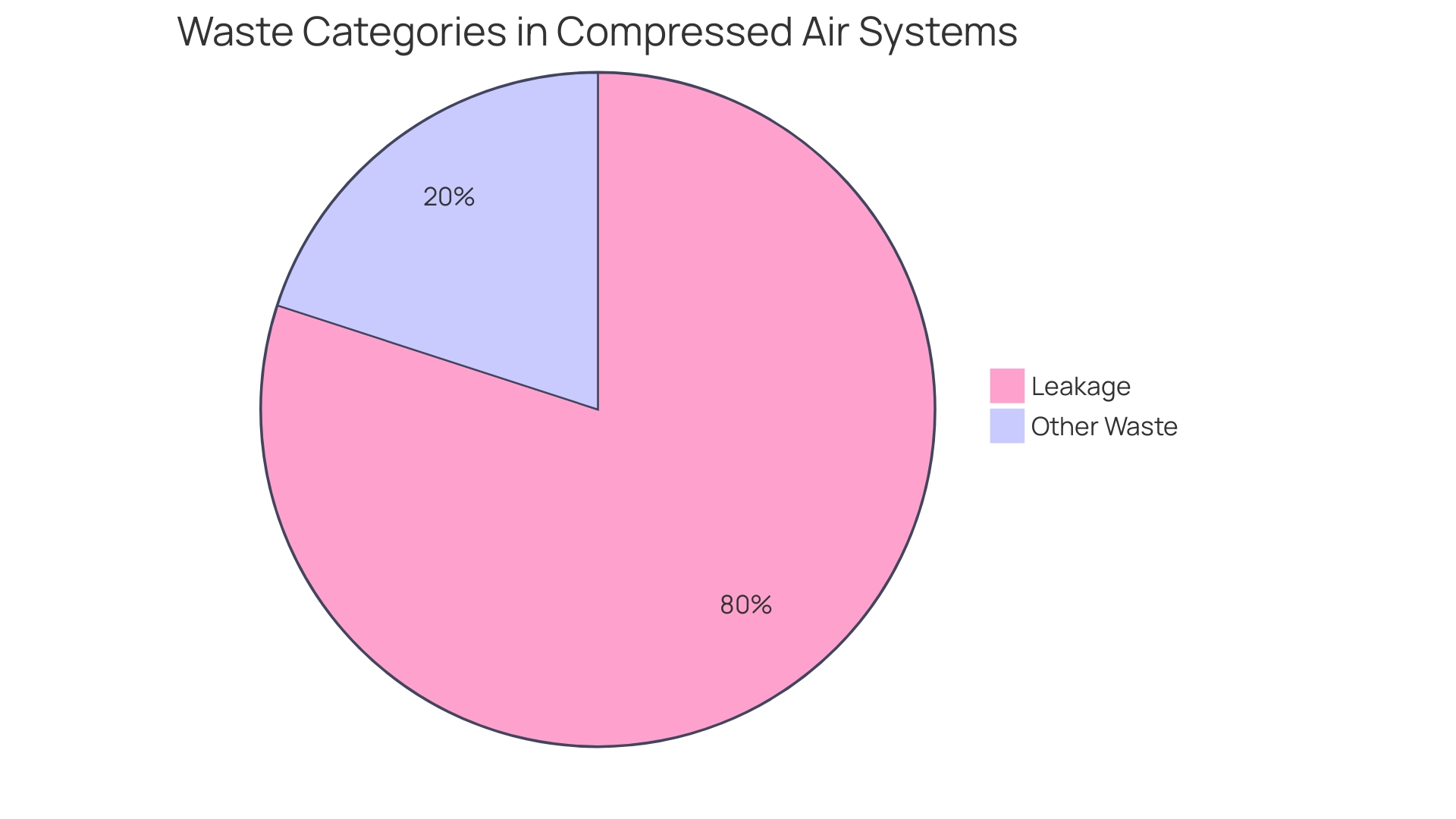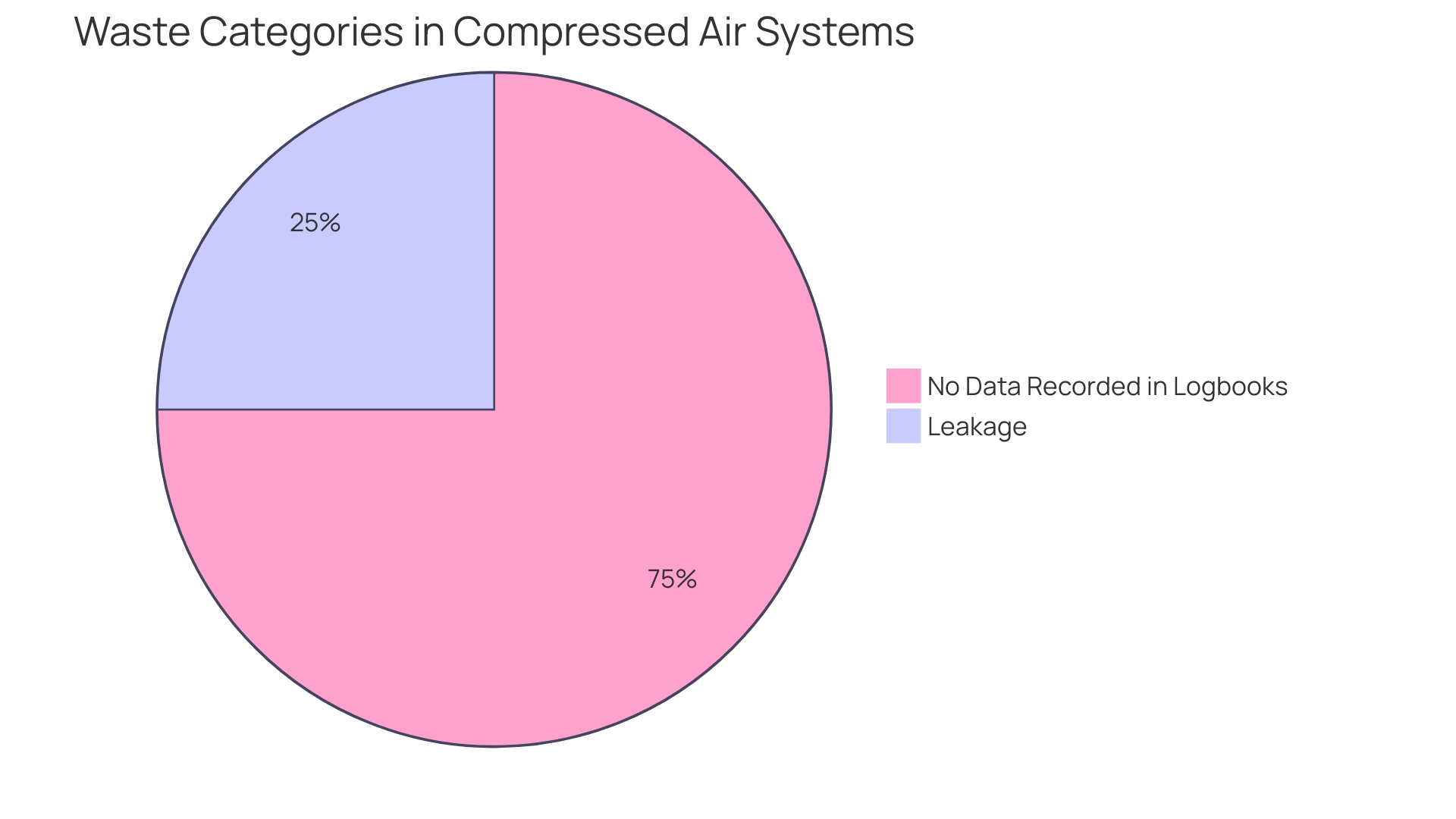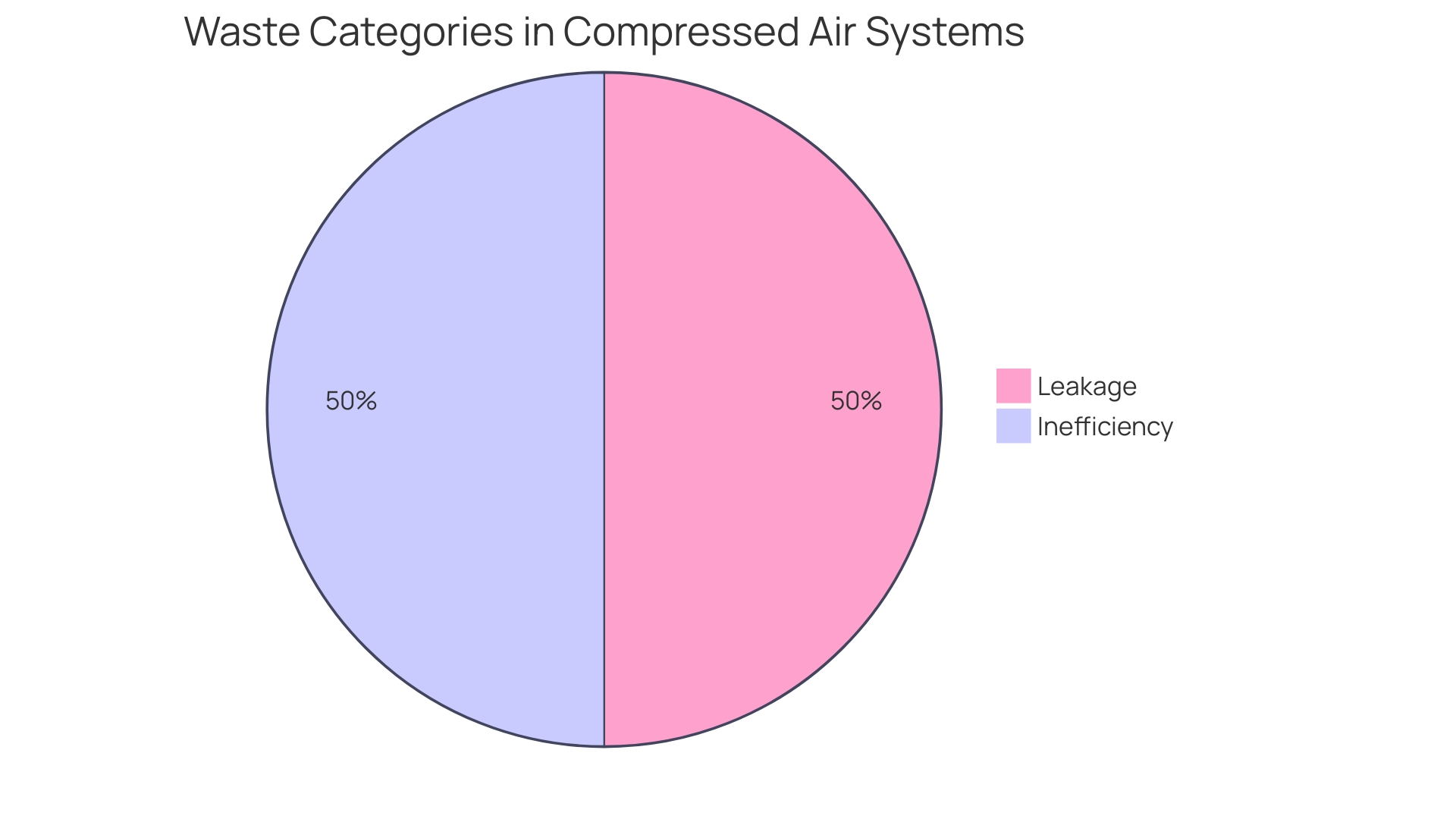Introduction
Understanding Air Compressor Efficiency
Efficiency is a crucial factor in controlling energy expenses and operating costs in construction and industrial settings, especially in bustling cities like Dallas. But what exactly does it mean for an air compressor to be efficient? In this article, we will explore the key factors that influence air compressor efficiency and how addressing them can lead to substantial savings.
From proper system design to maintenance and selecting the right compressor models, we will delve into the strategies that can optimize the use of air compressors. Join us as we uncover the impact of inefficiencies and the steps you can take to enhance efficiency, all while contributing to a more cost-effective and reliable operation of air compressor rentals.
Understanding Air Compressor Efficiency
Grasping the effectiveness of air compression systems is crucial for maximizing their utilization in construction and industrial environments, particularly within the bustling metropolis of Dallas. Effectiveness in this situation is the air machine's ability in converting power into pressurized air with minimal losses, a vital element in managing energy expenses and operating costs. Important factors that impact this efficiency involve appropriate design, maintenance to prevent leaks, and the selection of suitable compressor models for specific tasks.
Leakage, for instance, is a notorious culprit in wasted energy, often accounting for 20% to 30% of total consumption, and in some cases, significantly more. Addressing leaks is a vital step in improving efficiency, as highlighted by industry experts and training programs like the Compressed Air Challenge. Real-world scenarios underscore the impact of such inefficiencies. For example, a plant engineer from a mid-sized manufacturing facility struggled with frequent pressure drops and high energy use, only realizing the financial drain this caused upon management's review.
Furthermore, certain practices, such as using a motor's service factor to boost output, may offer a temporary increase in air delivery but at the cost of reduced motor lifespan. It's essential to avoid such shortsighted adjustments, as evidenced by the experience of a plastic products producer who initially misdiagnosed low pressure issues as a need for increased capacity, leading to unnecessary equipment rental and production halts.
The Department of Energy recommends that enhancing air compression setups can result in energy efficiency enhancements ranging from 20% to 50%. Basic interventions, like repairing leaks, can result in significant savings; experts estimate that up to 30% of air usage could be wasted through leaks.
To fully control the intricacies of compressed air setups and guarantee smooth operation, experts can seek certifications such as the CAGI CCASS, which indicate a thorough comprehension of setup components, design, and energy efficiency. With such knowledge, operators can enhance system performance and contribute to a more cost-effective and reliable operation of air machine rentals.

Choosing the Right Compressor for the Job
When selecting the perfect air press for your project's specific requirements, it's crucial to align the press's capabilities with the intended use to ensure optimum efficiency. With air machines playing a critical role in various industries, from construction to automotive, selecting the correct type and size is more than a convenience—it's a cost-saving decision. As an example, the typical air system encounters a leakage rate of 20-30%, highlighting the significance of a properly matched air pressurization device to reduce inefficiencies and sustain efficiency. The cubic feet per minute (CFM) of airflow and the required air pressure are key specifications to consider, especially when using pneumatic tools or other equipment that rely on a steady and sufficient supply of compressed air. By customizing your air pressure device selection to the task at hand, you not only improve performance but also contribute to energy conservation, thereby reducing overall operational costs.
Proper Maintenance for Optimal Efficiency
To uphold optimal functioning of leased air machinery, meticulous upkeep is essential. Overlooking this aspect can result in diminished efficiency, heightened energy usage, and possible equipment failures. Adhering to the manufacturer's maintenance protocols—such as timely filter replacements, regular oil changes, and thorough inspections—is essential. Furthermore, maintaining cleanliness and removing any debris from the machinery enhances its sustained efficiency throughout the rental period.
In the realm of industrial air devices, adaptability is crucial, especially when facing unforeseen demands or equipment malfunctions. Renting circumvents the financial burdens of ownership and maintenance, exemplified by companies like Atlas Copco Rental, which excel in providing efficient, on-demand solutions. In emergency scenarios, their expertise shines by managing crises efficiently on the client's behalf.
For example, the incorporation of a heat recovery mechanism in a compressor can greatly decrease operational expenses by repurposing the surplus heat produced for plant heating. However, if the machinery produces more heat than needed, it indicates an underlying mechanical issue that could escalate costs if left unchecked. In facilities where air is utilized for ventilation, it's crucial to assess the cost-effectiveness of such applications due to the high expense of generating air.
The Compressed Air and Gas Institute (CAGI) offers the CCASS credential, emphasizing mastery in air compression and gas, encompassing design and energy efficiency. Application Engineers, such as those at EXAIR who have achieved this certification, are adept at optimizing system performance and maintenance, thereby maximizing energy efficiency.
In industries where clean, dry air is a regulatory mandate to prevent product contamination or damageâlike the food, beverage, and pharmaceutical sectorsâoil-free compressors are the gold standard. They provide air purity and, despite higher initial costs, result in long-term savings and reduced risk.
Furthermore, addressing 'artificial demand'âthe excess consumption of air by maintaining higher-than-necessary pressuresâcan lead to energy savings. By modifying the setup to the exact requirements of the equipment, you can decrease energy usage and leakage rates, thereby maximizing efficiency.
As per the U.S. Department of Energy, enhancing air pressure arrangements can result in a 20% to 50% enhancement in energy effectiveness. With billions spent annually on the energy produced by air compression, simple measures like repairing leaks can lead to significant savings, as unattended leaks can account for up to 30% of the air usage of a setup.

Optimizing Air Compressor Usage
When optimizing air rentals for heightened efficiency, taking a proactive approach to system maintenance is key. Including an air receiver tank can be a strategic choice, as it allows you to store pressurized air, easing the demand on the machine and enhancing its performance. Regulation of pressure is another critical step; by leveraging the compressor's built-in pressure regulator, you ensure stable pressure levels, which translates to more efficient operation and energy savings.
It's well-known that leakage can account for a substantial waste of compressed air, with average losses ranging between 20% and 30% in manufacturing facilities. Dealing with these leaks is not only about integrity, but it also presents a significant chance for cost reduction. As reported by the Compressed Air Challenge, fixing leaks is the most straightforward and impactful action for improving efficiency. With the U.S. Department of Energy emphasizing potential energy savings of up to 50% through optimization, regular inspections and prompt repairs of air distribution setups are not only sensible but essential for operational efficiency.
Furthermore, advancements and certifications in compressed air systems, such as the CAGI CCASS credential, emphasize the importance of mastery in system design and maintenance. By applying these expert insights to manage your air compressor rentals effectively, you can ensure that your equipment delivers optimal performance, directly contributing to the success of your projects.

Conclusion
In conclusion, understanding air compressor efficiency is crucial for optimizing their use in construction and industrial settings. Factors such as proper system design, maintenance, and selecting the right compressor models play a significant role in influencing efficiency.
Addressing leaks is vital for improving efficiency, as they can account for a significant portion of wasted energy. Choosing the right compressor for the job minimizes waste and maintains productivity. Proper maintenance, including timely filter replacements and regular inspections, ensures peak performance.
Taking a proactive approach to system maintenance, integrating an air receiver tank, and regulating pressure through the compressor's built-in pressure regulator are key steps in optimizing air compressor usage. Fixing leaks is a straightforward and impactful action for improving efficiency.
By applying expert insights and certifications in compressed air systems, professionals can effectively manage air compressor rentals and ensure optimal performance. Maximizing efficiency in air compressor usage directly contributes to the success of projects and helps control operational costs.
In conclusion, addressing key factors such as system design, maintenance, and selecting the right compressor models is crucial for enhancing air compressor efficiency. By taking a proactive approach to system maintenance, fixing leaks, and leveraging certifications and expert insights, professionals can optimize air compressor usage and achieve significant energy savings.




